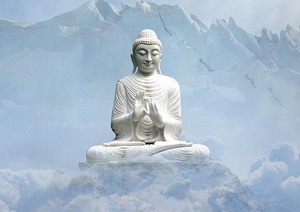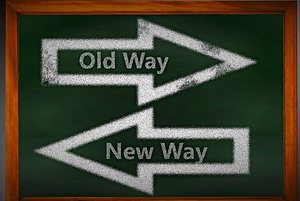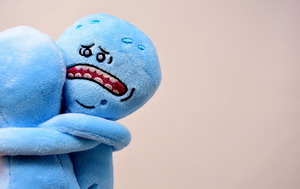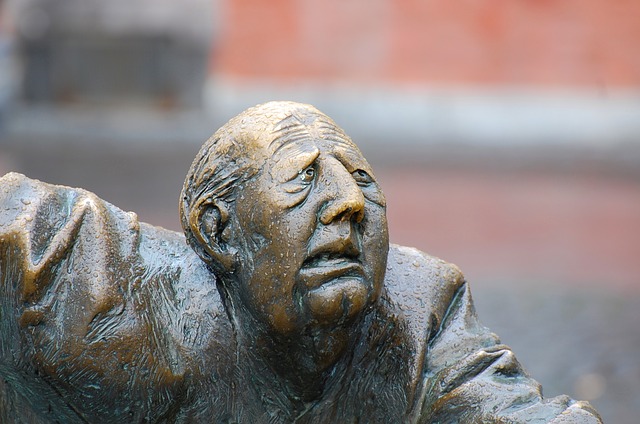The topic around the house this last week or so has been on suffering. This has been a favorite topic intermittently over the last 25 years or so, but this time it was different. This time, on her own, Ellen made the profound realization that all the suffering in her life has come from her wanting and demanding that everything be her way. This realization bubbled up to the surface as a consequence of Ellen focusing on a new way of working with her clients that was just based on feeling deeply without thoughts in the way. She noticed herself feeling bad (suffering) and decided to just feel into it and stay with it until it revealed what was driving this suffering. She began to see that her lifetime of trying to “save” people from suffering was really about believing that the suffering came from not doing or seeing things the “right” way. The “right way” was, of course, the way she thought she was supposed to see and do things. So suffering came from not being “right.” The “ah-ha” moment came when she felt how deeply her own suffering came from the story of not being the way she thought she was supposed to be. She popped out with “All my suffering is coming from everything not being my way!”

There is a saying – Pain is inevitable but suffering is optional. There is no particular person it is attributed to, but it seems to be a simplification of basic Buddhist principles. At the same time, I get the same message from the old Greek philosophers; the stoics. Maybe it is everywhere as a self-evident observation on life. Life always has pain and misery. No one escapes this. Whether you fall down and skin your knee or your village is ravaged by wildfires, unfortunate experiences happen. The human body is designed to experience pain. Pain is a feedback system to help us stay healthy. If that seems odd to you then look at folks that have leprosy, a disease that is basically a loss of the pain-sensing nerves.

Suffering, on the other hand, is all about the story we wrap around the pain. Suffering comes from our thoughts, attitudes, beliefs, and desires. The desire to avoid pain as well as the desire to experience pleasure both give birth to suffering. If we can’t avoid the pain or get the pleasure we might go into a self-judgment story which causes us to suffer. To the degree that we insist that certain experiences should not happen, we suffer. Likewise to the degree that we really want certain experiences and can’t have them, we suffer. Buddhist philosophy describes this trap as attachment. The state of being either for or against anything sets us up for suffering. Therefore one of the key spiritual goals for all souls is to learn to not be attached to things being “our way,” but instead to embrace all life just as it is. This is the essence of compassion.

Philosophy is nice, but it has a way of going in one ear and out the other. Words are not processed by the feeling centers of the brain. The meter of the words in poetry is processed as a feeling, but most philosophy is not presented in poetic form except for the early life choice training presented in children’s nursery rhymes. For this reason, however compelling the arguments and insights might be in a philosophy, they rarely change how a person feels about the world or themselves. That kind of change comes from the inside through the feeling centers. When you feel an insight as a reality in your experienced life and really get how this impacts you personally, it generates the opportunity for real change.
Having seen how true this is left Ellen and I questioning whether suffering really is optional. Human nature resists change. Suffering is the primary driver for producing change. Remember suffering can be either trying to avoid some experience or the great desire for some experience. Desire drives people to break out of their comfort zones that keep them boxed in repeating unpleasant life patterns. In AA it is well known that an alcoholic will not stop drinking until they “hit the wall,” which is where the consequences of their drinking become personally unbearable. In simple terms, the suffering has to become great enough to generate change.
The concept of readiness is one I strongly embrace. It does not matter what I say to a patient to try to get them to engage a more healthful lifestyle, nothing happens until they are ready. They have to want it bad enough or they have to want to avoid some consequence badly enough to create this readiness. This is just another way of describing suffering.

The psychological approach to suffering sounds quite nice. They say that the instant you move into gratitude you eliminate suffering. That sounds lovely. Write a gratitude journal and you will feel better. I believe this is true. When you embrace what is in this moment, your resistance and your unrealistic desire melt away and you feel better. This is what I would call a head override. It works through the power of attention control. Where your attention is, you are. So this technique works for as long as you have control over your attention. This fundamental reality is the underlying reason for doing meditation in any of its many forms. Meditation teaches us attention control.
But, an average person can have upwards of 70,000 thoughts in a single day. How many of you have enough attention control to redirect that many thoughts each day? Spiritual mastery is basically about being able to quiet the hungry desire-driven mind and embrace the here and now with compassion. While this is a heroic journey that requires the discipline of a saint, realistically not that many people in the Western culture are willing to reach that level of commitment to achieve peace of mind. So what can we do? Answer: feel.

Most of us are terrified to feel what is rumbling underneath the surface of our minds. I would like to tell you that the fear we have is much worse than the actual feelings under there. Certainly, we have a lot of repressed memories of many unpleasant things and events. We have heaps of self-judgments for things we believe we have done wrong. There are stacks of sadness for opportunities missed and connections lost. As you get down towards the bottom you will hit the rage at not receiving the imaginary entitlements you desperately believe you should have gotten. At the very bottom will be the simple survival fears of the tiny child that just has no clue how to get its basic needs met. Yes, all these are in there. And while we try to pretend that we have them successfully buried, the unfortunate truth is that they control your mood and your motivation day in and day out.

These feelings are not broken things that need to be fixed. They were real for you at the time they were formed. Some are still real and appropriate today, but most have lost their relevance to your life here and now. But you never have the opportunity to know that until you allow yourself to feel them without judgment. Some of them have important messages about skills you need to develop to be happier. Others show you how much you are the same as other people and are therefore not alone. Some will show you just how far you have actually come in your growing up as you invite them to be comforted by who you are today that you were not back then. Feelings are a much simpler way to let go of unnecessary resistance, self-judgments, and unrealistic desires – all the elements of suffering. Only by embracing our deep feelings and bringing out into the light of day in the present are we able to update our subconscious motivators to fit who we have become. It takes a little courage, but not as much as you might think.
In the language of yesteryear, we face our demons by naming them and bringing them out into the light. By doing this they lose their power over us, and we gain peace.
Take care,
David
